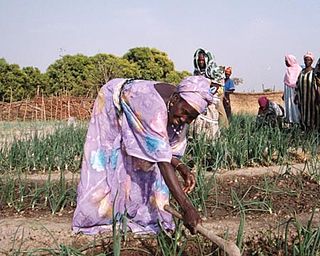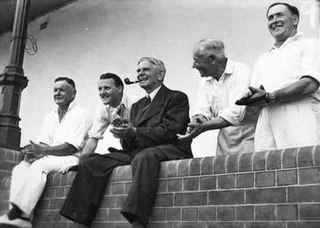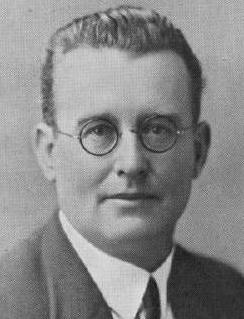Related Research Articles
A marketing board is an organization created by many producers to try to market their product and increase consumption and thus prices. It can also be defined as an organization set up by a government to regulate the buying and selling of a certain commodity within a specified area. They most commonly exist to help sell farm products such as milk, eggs, beef or tripe and are funded by the farmers or processors of those crops or products. Marketing boards often also receive funding from governments as an agricultural subsidy. The leadership and strategies of the marketing boards are set through votes by the farmers who are members of the board.

An agricultural cooperative, also known as a farmers' co-op, is a cooperative in which farmers pool their resources in certain areas of activity.

Wesfarmers Limited is an Australian conglomerate, headquartered in Perth, Western Australia. It has interests predominantly in Australia and New Zealand, operating in retail, chemical, fertiliser, industrial and safety products. With revenue of A$30.8 billion in the 2020 financial year, it is one of Australia's largest companies by revenue. Wesfarmers is also one of the largest private employers in Australia, with approximately 107,000 employees.

Tom Cleave Stott CBE spent 37 years as an independent member of the South Australian House of Assembly, from 1933 to 1970. He served as Speaker of the House from 1962 to 1965 for the Tom Playford LCL government and 1968 to 1970 for the Steele Hall LCL government, both times in exchange for his confidence and supply vote to form minority governments.

Horace Keyworth Nock was an Australian politician, farmer and company director.
This is a synopsis of organisations formed by Indians in Fiji. When they became free from the bondage of indenture and were able to organise themselves, they founded numerous organizations to seek social and political justice. These organisations promoted the teaching of Indian languages and religious practices and also to help others in time of need. Some of the successful organisations are listed below in the order in which they were established. Some, such as the National Federation Party, are no longer exclusively Indian, but are still predominantly so.

James Gardiner was an Australian politician who served in the Legislative Assembly of Western Australia from 1901 to 1904 and from 1914 to 1921. He served as colonial treasurer under two premiers, Walter James and Henry Lefroy. Gardiner was also the inaugural state leader of the Country Party from 1914 to 1915, and briefly served as Speaker of the Legislative Assembly from March to June 1917.
The Victorian Farmers' Union (VFU) was an association of farmers and primary producers formed in 1914 in the Australian state of Victoria. Although initially formed as an "absolutely non-political" entity, the VFU became a political party in 1916, and nominated candidates for the 1917 state election and subsequent elections. In later years it used the names Victorian Country Party, then United Country Party and is now the National Party of Australia – Victoria. At the 1917 election, because the support for the VFU was concentrated in rural seats, it won four of the 11 seats in the Victorian Legislative Assembly it contested, gaining about 6% of the vote state-wide. In 1918 it also won its first seat in the federal parliament, after preferential voting was introduced. At the 1920 state election the VFU vote increased to 8% and the number of seats to 13, giving the VFU the balance of power in the state Legislative Assembly.
The National Party of Australia (WA) Inc, branded The Nationals WA, is a political party in Western Australia. It is affiliated with the National Party of Australia but maintains a separate structure and identity. Since the 2021 state election, the Nationals WA was the senior party in an opposition alliance with WA Liberal Party in the WA Parliament. Prior to the election, the National Party was sitting in the crossbench and the Liberal Party was the sole opposition party. The election resulted in the National Party winning more seats than the Liberal Party and gaining official opposition status. Under the opposition alliance, the National Party leader and deputy leader would be the opposition leader and deputy opposition leader respectively, the first since 1947, and each party would maintain their independence from each other.

George Albert Reginald Gibbons was an Australian politician. He was an Australian Labor Party member of the Australian House of Representatives from 1929 to 1931, representing the regional New South Wales electorate of Calare.

Donald William Maisey was an Australian politician.

Thomas William Marwick was an Australian farmer and politician. He was a member of the Country Party and served both as a Senator for Western Australia (1936–1937) and as a member of the House of Representatives for the seat of Swan (1940–1943).

Elections were held in the state of Western Australia on 15 March 1947 to elect all 50 members to the Legislative Assembly. The result was a hung parliament—the four-term Labor government, led by Premier Frank Wise, was defeated with a swing of approximately 7%. The Liberal-Country Coalition won exactly half of the seats, one short of a majority, needed the support of the Independent members Harry Shearn and William Read to govern.
Walgoolan is a small town located in the eastern Wheatbelt region of Western Australia. It is situated between Merredin and Bodallin along the Great Eastern Highway.

Daniel Eric Kent was an Australian politician, elected as a member of the Victorian Legislative Council in 1970.
Sir John Smith Teasdale CBE was an Australian wheat farmer and administrator.
Cooperative Wheat Pool of Western Australia, commonly known as the Wheat Pool of Western Australia, is a cooperative of wheat growers in Western Australia. The cooperative was formed in 1922 and one of the inaugural trustees was Charles Walter Harper, who became the chairman of the Westralian Farmers Co-operative later the same year and then went on to form Cooperative Bulk Handling.
The Victorian Farmers Federation (VFF) is an Australian non-profit membership based advocacy and lobby group that represents farmers in Victoria. The organisation represents its members in lobbying state and federal government on policy matters that affect farmers and regional communities. The VFF is a member organisation of the national farm lobby group the National Farmers Federation.
Miles Bourke was an Australian farmer who served as the first president of the Victorian Farmers' Federation.

Charles Walter Harper was an Australian agriculturalist who was prominent in the cooperative movement in Western Australia. He was one of the founders of Wesfarmers, serving as its chairman from 1921 to 1953, and also helped establish what is now CBH Group.
References
- ↑ See Farmers' and Settlers' Association of Western Australia (1916), Report of annual conference, The Association, retrieved 26 September 2013 for details of the Farmers and Settlers annual reports prior to the name change of 1920
- ↑ Farmers' and Settlers' Association of Western Australia (1916), Constitution, branch rules, political platform, The Association, retrieved 13 March 2015
- ↑ For a short view of a part of the associations activities - see Primary Producers' Association of Western Australia (1930), Records, 1930 , retrieved 26 September 2013
- ↑ Parliament of Western Australia, 1996, Competition Policy Reform (Western Australia) Bill Second Reading; House: Legislative Council (22 October) Hansard (8 November 2014).
- ↑ For the internal rules of this group see Wheatgrowers' Union of Western Australia (1933), Constitution, rules and regulations : adopted Jan. 14th, 1931, amended Feb. 1932, further amendment, Feb. 1933, [The Union], retrieved 26 September 2013
- ↑ Wheat and Wool Growers' Union of Western Australia (1940), Rules and regulations : adopted February 18th, 1938, amended August, 1938, 1939, The Union, retrieved 26 September 2013
- ↑ Mercer, F. R; Mercer, Frederick Royston; Farmers' Union of W.A (1955), On farmers' service : a short history of farmers' organisation in Western Australia, Farmers' Union of W.A, retrieved 26 September 2013 for that union's version of the history of the various groups mentioned here
- ↑ Primary Industry Association of Western Australia. Conference (1985), Proceedings of the ... annual conference, The Association, retrieved 26 September 2013
- ↑ Brammer, Jenne (8 May 2019). "Poll pitch for new farmers group". The West Australian. Seven West Media. Retrieved 12 May 2019.